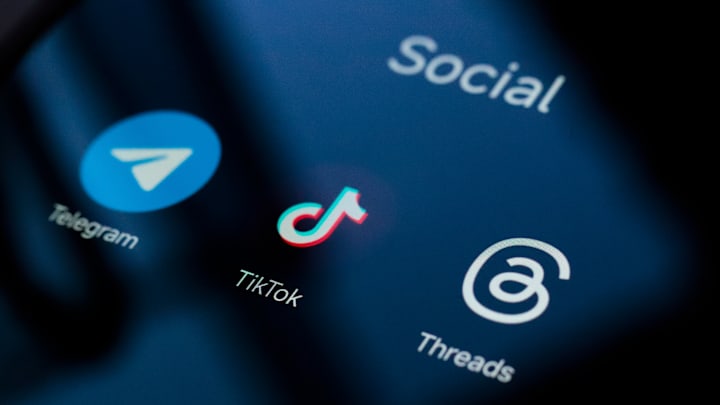Social media is often spoken about in regard to its potential negative side effects. But are apps like TikTok and Instagram now so embedded in our culture that we couldn't -- or shouldn't -- live without them?
Humans existed for generations before social media as we know it became integrated into our daily lives. It seems simple enough to think, therefore, that humanity could survive just fine without posting elaborate dinner photos to our Instagram stories or watching the latest TikTok trends unfold as we scroll through video after video on our FYPs.
But what if it's not that simple? What if social media does more net good than harm?
The potential negative consequences of apps like TikTok are well-known. Social media is designed to be addictive -- the longer "users" spend on websites and apps, the more money the companies behind them make. Features such as endless scrolling and algorithms that target a person's specific likes and interests are meant to draw us in and keep us engaged.
Issues only begin to arise when we allow ourselves to get sucked in.
I began making what have since become fundamental friendships and relationships online during the months following lockdown in 2020. Social media was how we connected with one another when we couldn't connect in person. We felt helpless and hopeless, and we began finding a sense of community in that. Over the internet, when people come together, good things can happen.
Bad things can happen too. The term "chronically online" is named as such for a reason. Connecting with people is healthy. Making connections online and essentially rotting in place as a wholly online version of yourself is dangerous and extremely damaging. Real human interaction is essential to our survival. But that doesn't mean interacting with other people online can't have its own benefits.
There is a reason people continue to use TikTok and Instagram and even X (Formerly Twitter). Despite bots running wild online, people go to their favorite sites and apps to interact with other accounts because it can provide a sense of closeness and belonging. A lot of that is the dopamine rush you get when you get a like on your latest video or post, but people also often form real relationships that extend beyond their virtual feeds. People come together to raise money for charitable causes, speak out about important issues, and tell stories that change lives.
Anything good can be taken too far. Social media overuse can cause mental health problems just like a drug can. But for those in need of human connection who for whatever reason may not have enough of it outside the screen, apps like TikTok and Instagram can act as a supplement to real human interaction -- not to completely replace it, but to fill in any gaps someone may be missing in their social lives.
There are plenty of bad things to discuss when addressing social media and its impact on modern society. But not enough of us consider that it could be important to our well-being in a way that, if balanced adequately, could help many people thrive.
